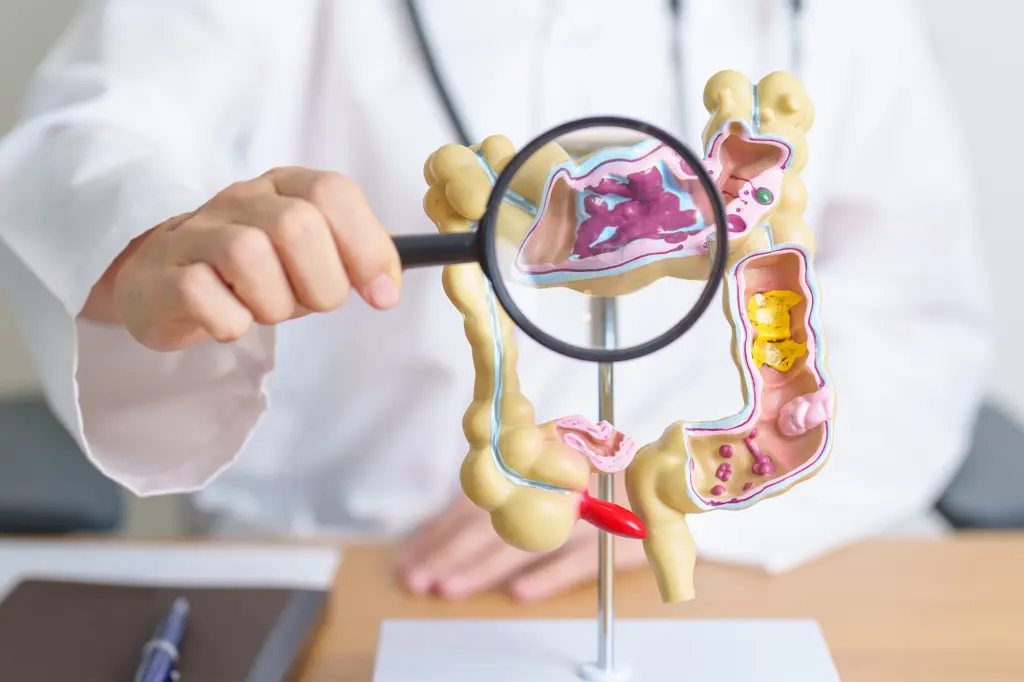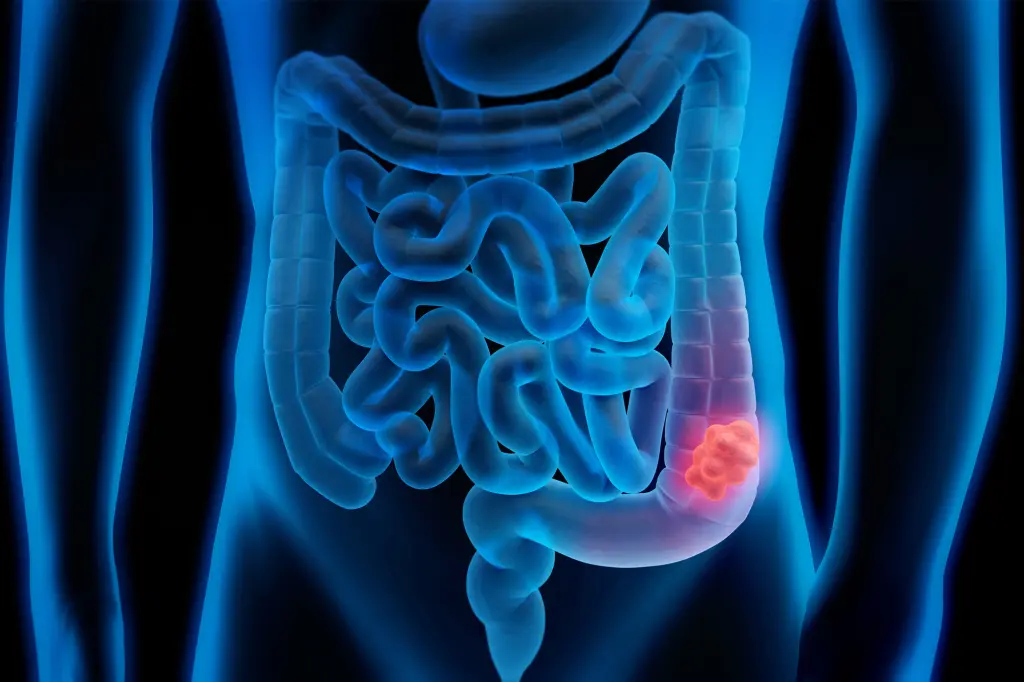Colorectal cancer is one of the leading causes of cancer-related deaths worldwide, affecting about 150,000 Americans annually. With rising rates among younger individuals, awareness of early signs and symptoms has become more critical than ever. While colon cancer can be silent in its early stages, there are certain warning signs that may help in early detection. In this article, we’ll discuss five concerning symptoms that could indicate colon cancer, as explained by medical experts.

Understanding Colon Cancer: Why Early Detection Matters
Colon cancer begins in the colon or rectum, which are parts of the large intestine. It often starts as small, benign clumps of cells called polyps. Over time, some of these polyps can develop into cancer. Identifying symptoms early can significantly improve the chances of successful treatment, as early-stage colon cancer is more treatable.
The Importance of Regular Screenings
The U.S. Preventive Services Task Force recommends regular screenings for adults aged 45 to 75, even if they don’t have symptoms. Screenings can detect polyps before they become cancerous, allowing for timely removal. For individuals with a family history of colorectal cancer, inflammatory bowel disease, or other risk factors, screening may need to start even earlier.
Now, let’s delve into the five key symptoms that could signal colon cancer.
1. Pencil-Thin Stools: A Potential Warning Sign
If you notice a change in the shape of your stool, such as consistently pencil-thin stools, it could be a cause for concern.
Why It Happens
Dr. Waqqas Tai, a cancer specialist, explains that narrow stools often occur when a tumor is present in the colon, particularly near the end of the large intestine. As tumors grow, they can constrict the passage of stool, leading to a narrower shape.
What to Do
If you consistently notice thin stools, do not ignore it. Dr. Michael Cecchini from Yale Cancer Center stresses that this symptom is “highly concerning” and should prompt immediate medical evaluation. A colonoscopy can help identify the cause and confirm whether a tumor is present.
2. Blood in the Toilet: Don’t Assume It’s Hemorrhoids
Spotting blood in the toilet can be alarming, but it’s a symptom that should never be ignored.
Why It Happens
Blood in the stool or toilet may be a sign of conditions like hemorrhoids, anal fissures, inflammatory bowel disease, or, more seriously, colon cancer. A tumor in the colon or rectum can bleed, leading to visible blood during bowel movements.
What to Do
According to Dr. Tai, you shouldn’t just assume the bleeding is due to hemorrhoids. Even if hemorrhoids are common, rectal bleeding could be a sign of a more serious condition. Dr. Terry Simpson, a general surgeon, emphasizes that blood in the stool should be treated as a potential emergency, requiring a thorough medical evaluation.
3. Anemia: Low Red Blood Cell Counts
Anemia, characterized by low red blood cell counts, is another potential sign of colon cancer, especially in men. It occurs when a tumor in the digestive tract causes slow, internal bleeding, leading to a decline in hemoglobin levels.
How It Relates to Colon Cancer
According to recent research, anemia is present in 30% to 75% of colorectal cancer patients. Dr. Tai notes that anemia in men is particularly concerning, as there is typically no “healthy reason” for it. In women, anemia should also prompt concern if it occurs without heavy periods or other clear causes.
What to Do
If you have unexplained anemia, it’s crucial to consult with your doctor and undergo a colonoscopy. Addressing anemia promptly can lead to the early detection of potential tumors, increasing the chances of effective treatment.
4. Severe Constipation and Diarrhea: An Alternating Pattern
Severe and alternating episodes of constipation and diarrhea can be a major red flag. While these symptoms might suggest other gastrointestinal disorders, they can also indicate the presence of a tumor in the colon.
@drwaqqastai 5 symptoms of colon cancer #coloncancer #doctor #coloncancerawareness #healthcare #medicine ♬ original sound – Dr. Waqqas Tai | Cancer Doctor
Why It Happens
A tumor can block the colon partially, leading to constipation. When the blockage shifts or becomes less severe, diarrhea can occur. This alternating pattern is a significant symptom that should not be overlooked.
What to Do
If you experience these alternating symptoms for more than a few days, it’s essential to seek medical attention. Dr. Tai advises getting a colonoscopy to rule out colon cancer and determine the cause of these gastrointestinal issues.
5. Unexplained Weight Loss, Fevers, and Night Sweats: The ‘B Symptoms’
Dr. Tai refers to these symptoms as “B symptoms,” which are often associated with advanced cancers, including colon cancer. Here’s what each symptom means:
Unexplained Weight Loss
If you find yourself losing weight rapidly despite maintaining your regular diet and exercise routine, it could be a sign of a metabolic change caused by cancer.

Fevers
Persistent low-grade fevers can signal the body’s response to the presence of cancer cells, indicating that the immune system is trying to fight off an abnormal condition.
Night Sweats
Severe night sweats, where you wake up drenched and need to change clothes or sheets, can also be a sign of cancer. These symptoms, particularly when they occur together, should not be ignored.
What to Do
If you experience one or more of these “B symptoms,” it’s vital to see a doctor promptly. These symptoms can indicate advanced cancer, making early intervention even more critical.
How to Reduce Your Risk of Colon Cancer
While some risk factors like age, genetics, and family history are beyond your control, there are several lifestyle changes that can reduce your risk:
1. Maintain a Healthy Diet
Adopting a diet high in fiber, fruits, vegetables, and whole grains can promote colon health. Limiting red and processed meats may also lower your risk.

2. Stay Active
Regular physical activity not only supports general health but also reduces the risk of colon cancer. Aim for at least 150 minutes of moderate exercise per week.
3. Get Screened Regularly
Regular screenings are the most effective way to detect colon cancer early. Starting at age 45, everyone should undergo screening—earlier if there are additional risk factors.
Conclusion: Listen to Your Body and Act Early
Colon cancer is a serious condition, but it’s also highly preventable and treatable when caught early. By paying attention to concerning symptoms like pencil-thin stools, blood in the toilet, unexplained anemia, alternating constipation and diarrhea, and ‘B symptoms,’ you can take timely action that could save your life. If you experience any of these symptoms, don’t hesitate—consult your healthcare provider and schedule a screening. Early detection is your best defense against colon cancer.


